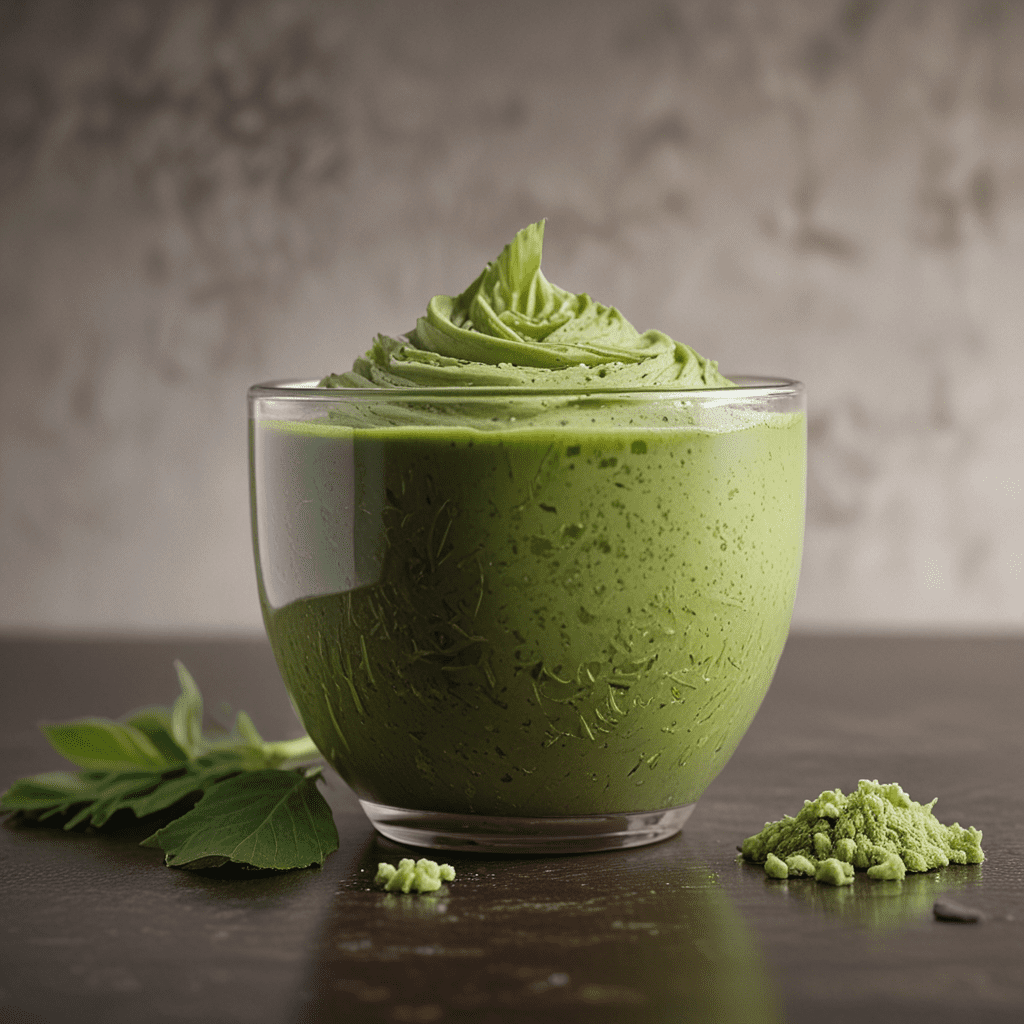Introduction: Matcha and its Rich Nutritional Profile
Matcha is a finely ground green tea powder revered for its vibrant green hue and rich nutritional profile. Derived from the Camellia sinensis plant, matcha boasts an abundance of antioxidants, vitamins, and minerals. Its unique cultivation process involves shading the tea plants for weeks before harvesting, leading to an increased concentration of chlorophyll and other health-promoting compounds.
Matcha’s Role in Cognitive Enhancement
Matcha's exceptional nutritional content plays a significant role in cognitive enhancement. Its potent antioxidants, particularly catechins, protect brain cells from damage caused by oxidative stress. Additionally, matcha contains L-theanine, an amino acid that promotes a state of relaxation and alertness, without inducing jitters. This unique combination of antioxidants and L-theanine makes matcha an ideal beverage for supporting cognitive function.
Antioxidant Protection and Neuronal Health
The antioxidants in matcha, including catechins and EGCG (epigallocatechin gallate), combat free radical damage that can impair brain health. These antioxidants protect neurons from oxidative stress, which is linked to cognitive decline and neurodegenerative diseases. By shielding brain cells from damage, matcha helps preserve neuronal health and cognitive function.
Stimulation of Neuroprotection and Anti-Inflammatory Processes
Matcha's anti-inflammatory properties also contribute to its neuroprotective effects. Chronic inflammation is associated with cognitive impairment and neurodegenerative diseases. Matcha's antioxidants possess anti-inflammatory properties that help reduce inflammation in the brain, promoting neuronal health and supporting cognitive function.
Improved Memory and Cognitive Function
Clinical studies suggest that matcha consumption may enhance memory and cognitive function. The combination of antioxidants and L-theanine in matcha has been shown to improve attention, concentration, and working memory in both healthy individuals and those with cognitive impairments. Regular consumption of matcha may support optimal cognitive performance and memory function.
Enhanced Alertness and Focus
Matcha's unique blend of caffeine and L-theanine provides a boost of alertness and focus without the jitters or crash associated with regular coffee consumption. The sustained release of caffeine from matcha allows for prolonged periods of mental clarity and concentration, making it an excellent beverage for studying, work, or any activity requiring heightened cognitive function.
Mood Regulation and Stress Relief
The L-theanine in matcha has calming effects that help regulate mood and reduce stress levels. L-theanine promotes the production of alpha waves in the brain, which are associated with relaxation and a state of heightened awareness. By reducing anxiety and improving mood, matcha can enhance overall well-being and support mental health.
Neurodegenerative Disease Prevention and Treatment
Research suggests that matcha's antioxidants and anti-inflammatory properties may help protect against neurodegenerative diseases such as Alzheimer's and Parkinson's. Studies have found that regular matcha consumption reduces the accumulation of amyloid-beta plaques, which are associated with Alzheimer's disease. Matcha's potential to prevent and treat neurodegenerative diseases is an exciting area of ongoing research.
Clinical Evidence Supporting Matcha's Cognitive Benefits
Numerous clinical studies have demonstrated the cognitive benefits of matcha consumption. In one study, participants who drank 2 cups of matcha per day showed significant improvements in attention, working memory, and processing speed compared to those who consumed a placebo. Another study found that matcha consumption improved cognitive function in older adults with mild cognitive impairment.
Recommendations for Incorporating Matcha into a Healthy Diet
Matcha can be easily incorporated into a healthy diet in various ways. It can be whisked with hot water to create a traditional tea, added to smoothies or shakes, or used as a flavoring in baked goods and desserts. Matcha's versatility makes it a convenient and enjoyable way to reap its cognitive and health benefits.
Frequently Asked Questions
Q: How much matcha should I drink per day?
A: Moderate consumption of 1-2 cups of matcha per day is generally considered safe and beneficial for most people.
Q: Can matcha help me lose weight?
A: While matcha can support weight management by boosting metabolism and reducing appetite, it is not a miracle weight-loss solution on its own. Incorporating matcha into a balanced diet and exercise routine can help promote a healthy weight.
Q: Is matcha safe for pregnant women?
A: While moderate matcha consumption is generally considered safe during pregnancy, it is recommended to consult with a healthcare professional for personalized advice.



